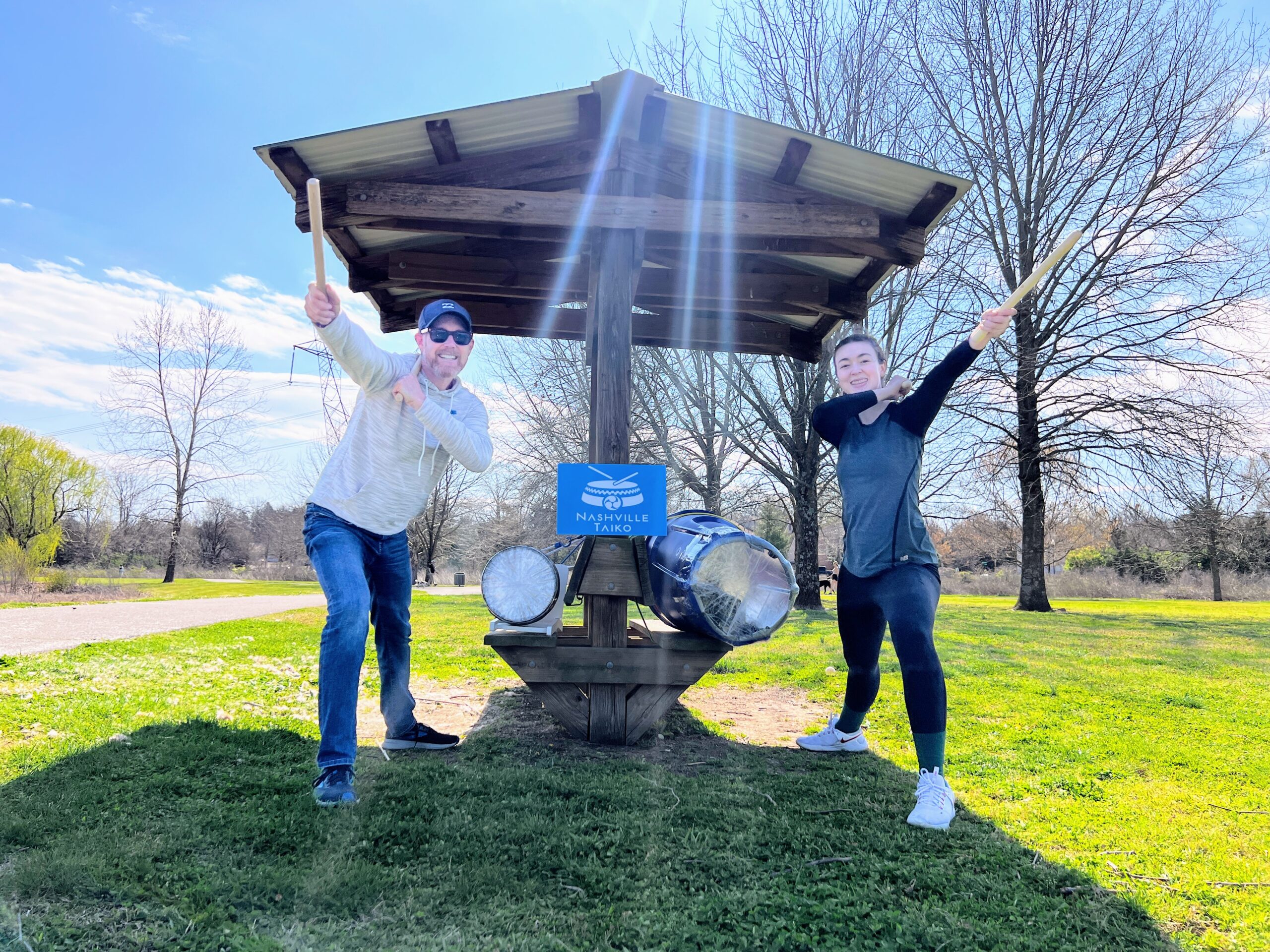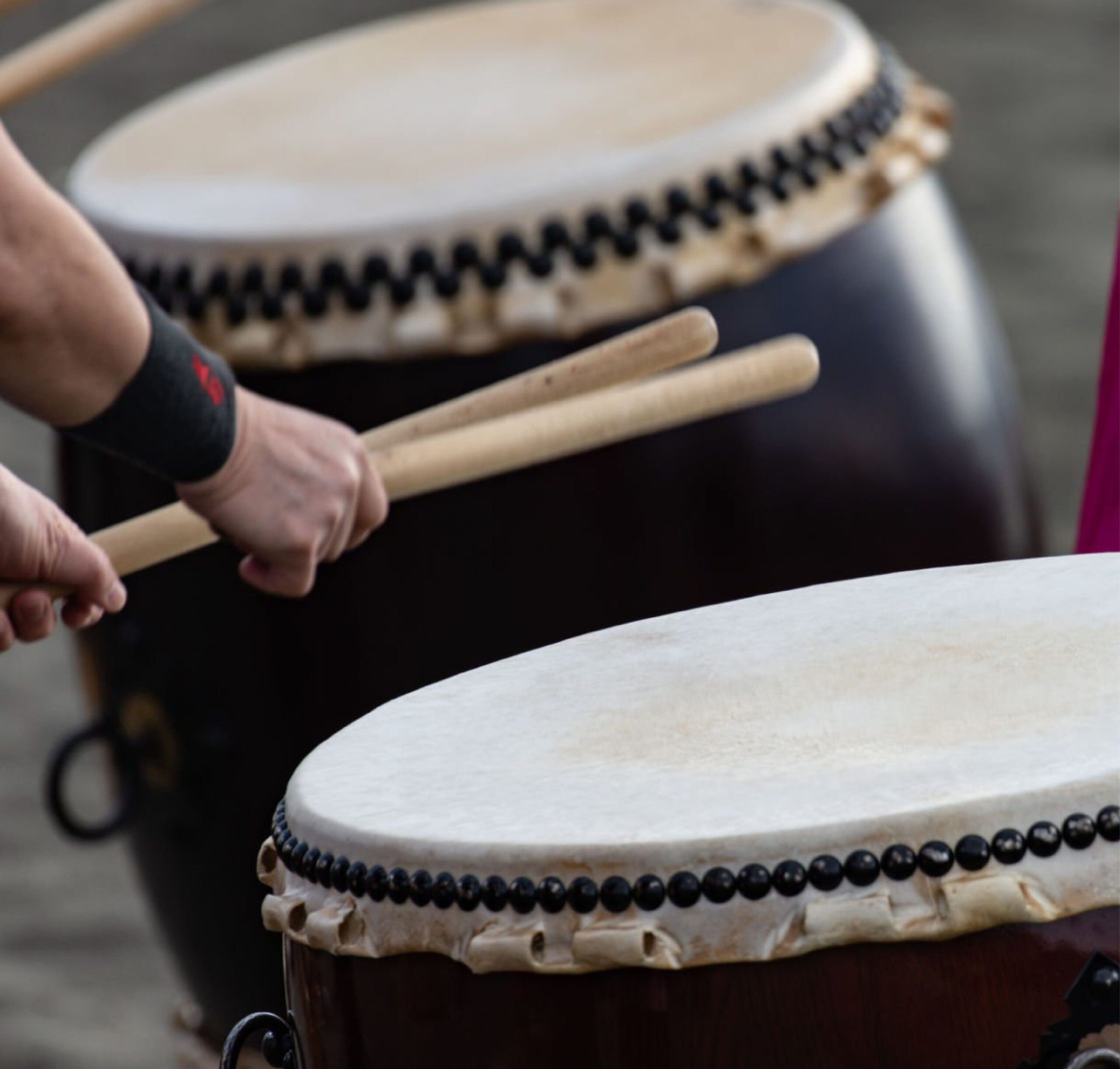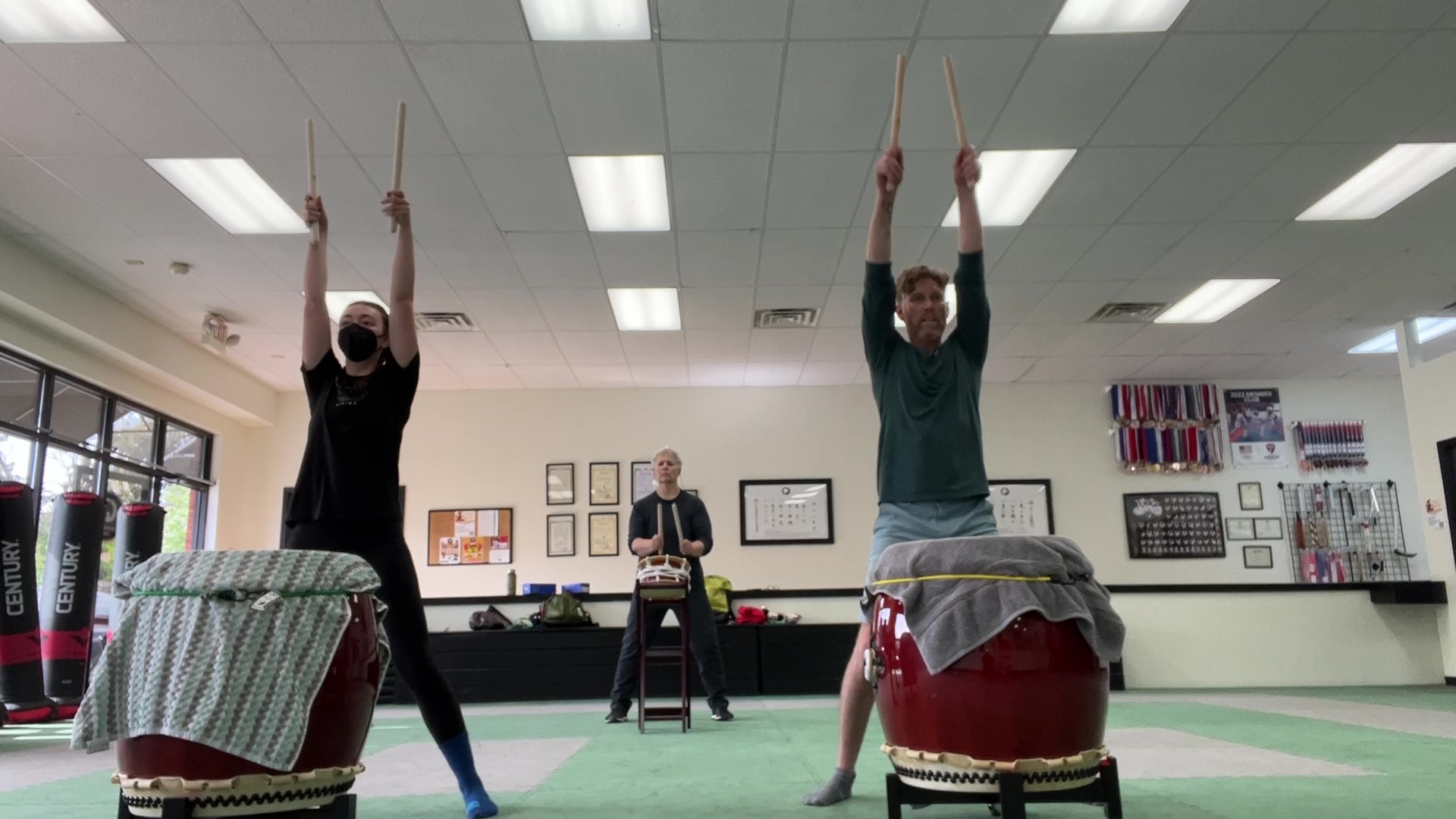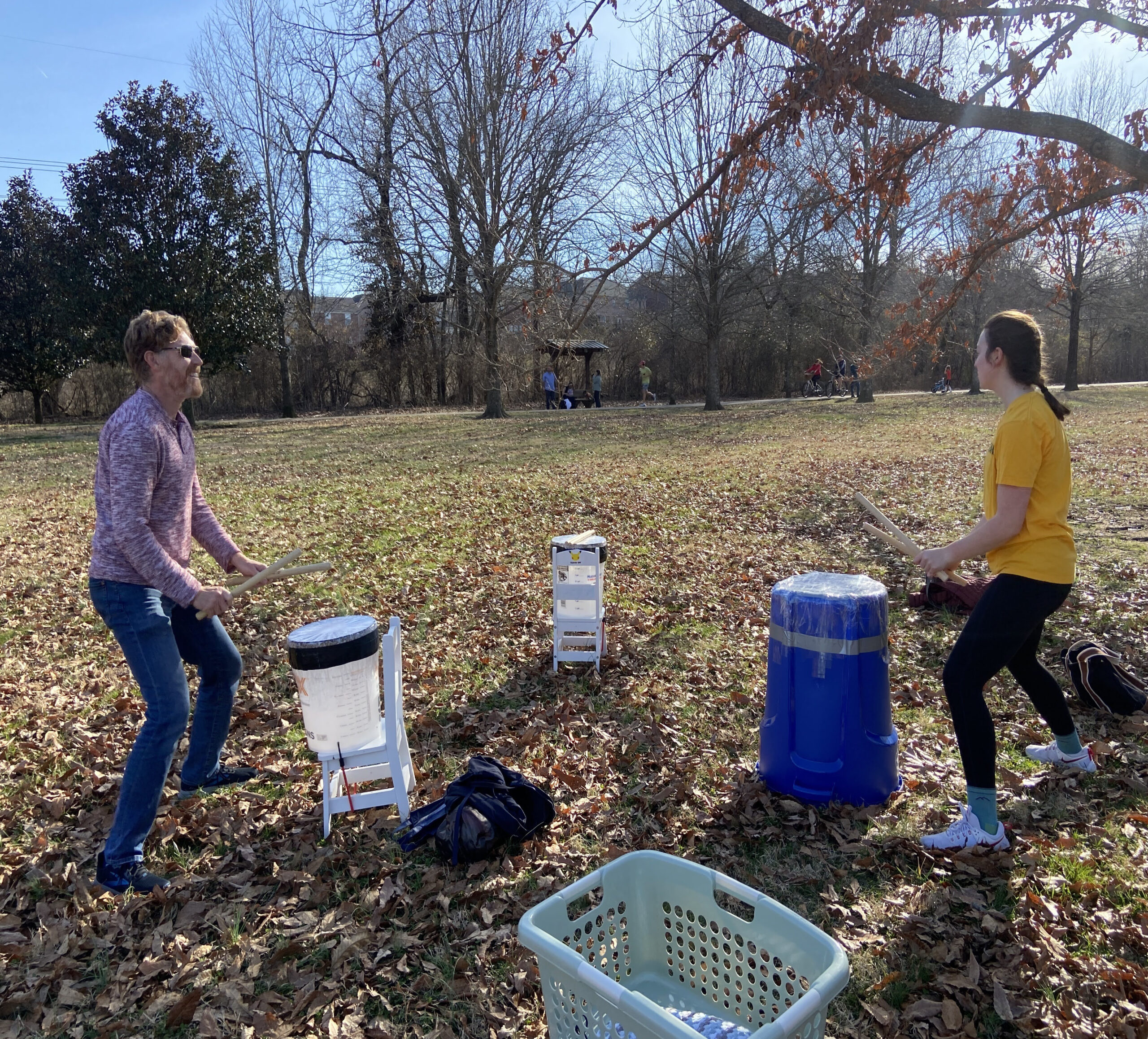

“Taiko,” the Japanese word for “drum,” encompasses both the traditional Japanese drums and the art form of ensemble drumming rooted in ancient Japan. Taiko drumming, known as “kumi-daiko,” involves a group of performers playing various drums in a highly choreographed manner. This combines rhythm, movement, and spirit in powerful performances that are both visually captivating and sonically profound.
Historically, taiko drums in Japan served various purposes, including communication, military actions, theatrical accompaniment, and religious ceremonies. While the origins of taiko date back to the 6th century, the ensemble drumming that characterizes modern taiko did not develop until the 1950s.
The drums themselves vary in size from small hand-held instruments to massive drums over a meter (3 feet) in diameter, and some even reach up to 3 meters (9 feet). Each drum produces a distinct sound that contributes to the ensemble’s overall sonic landscape. The visual aspect of taiko is equally important, with drummers performing choreographed movements that include dramatic poses and synchronized strikes. This makes taiko a holistic art form that engages the audience visually as well as aurally.
Beyond its performance aspect, taiko holds cultural significance, embodying values such as teamwork, respect, and discipline.
Nashville Taiko, established in 2023/4, boasts founding members who trace their taiko heritage through two distinct routes:
(i) They received mentorship and training from Ringtaro Tateishi, a renowned taiko performer and former member of Ondekoza (鬼太鼓座) (“demon drum group”), one of the most prominent professional Taiko groups globally. Ondekoza historically influenced the rise of the kumi-daiko (group taiko) style of taiko.
(ii) They are affiliated with Oberlin College Taiko, an institution that has been promoting knowledge and appreciation of taiko since 2008.


Nashville Taiko’s group identity is centered around three principles:
1. Honor and appreciate the Japanese culture, tradition, and history of Taiko;
2. Be welcoming and inclusive of diversity, building community, and allow this to shape the culture of the evolving group, facilitating its members’ creative expression of music and movement;
3. Add to the musical culture of Nashville, the “Music City”, and share our unique art with the world.
We started from a simple base, performing with Gomi daiko (home made) drums in local parks before acquiring high-quality taiko equipment and moving into our indoor practice space.